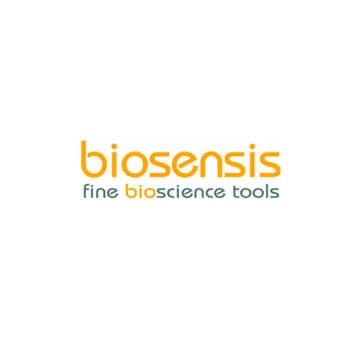
Supplier:
Aviva Systems Biology Incorporatedmouse IL-5 ELISA kit (48 Wells)
For the quantitative determination of mouse interleukin 5 (IL-5) concentrations in cell culture supernates, serum, and plasma.
Principle of the assay: This assay employs the quantitative sandwich enzyme immunoassay technique. A monoclonal antibody specific for IL-5 has been pre-coated onto a microplate. Standards and samples are pipetted into the wells and any IL-5 present is bound by the immobilized antibody. Following incubation unbound samples are removed during a wash step, and then a detection antibody specific for IL-5 is added to the wells and binds to the combination of capture antibody-IL-5 in sample. Following a wash to remove any unbound combination, and enzyme conjugate is added to the wells. Following incubation and wash steps a substrate is added. A colored product is formed in proportion to the amount of IL-5 present in the sample. The reaction is terminated by addition of acid and absorbance is measured at 450nm. A standard curve is prepared from seven IL-5 standard dilutions and IL-5 sample concentration determined.
Prices direct from Aviva Systems Biology Incorporated
Quick response times
Exclusive Absave savings/discounts
Applications
ELISA
Reactivities
Hum
Applications
ELISA
Reactivities
Hum
Latest promotions
Buy any polyclonal or monoclonal antibody from our extensive range of pre-made antibodies and for a limited time only receive a $50 discount!(T&C apply:...
New brilliant antibodies, and new lower prices!For flow cytometry reagents in general, \"bright is better.\" The violet-excitable BD Horizon™ BV421 and...
We're so sure that you'll prefer Cayman Assay kits over your present brand that we're willing to give you a free assay kit to prove it!
For the past decade scientists have extensively used ATS secondary toxin conjugates to make their own targeted toxins for in vitro use.The ability to combine...
10% Discount on 2 Rabbit Polyclonal Antibody Service. With over 20 years experience, SDIX has developed into the premier US custom antibody producer,...
Did your supplier increase the price of Fetal Bovine Serum? Did they substitute the US Origin with USDA? Well say no more! Innovative Research is still...
Bulk Cytokines with Custom Vialing.20 - 50% off cytokines, growth factors, chemokines and more...For a limited time Cell Sciences is offering substantial...
Are you planning to have a customised antibody made for your research?Since 2000, Everest has been producing a catalog containing thousands of affinity...
Top suppliers
Agrisera AB
11 products
Biotrend
Biosensis
969 products
ABBIOTEC
3011 products
SDIX
1 products
Spring Bioscience
2291 products
Cell Signaling Technology
4976 products
Rockland Immunochemicals, Inc.
7592 products
Boster Immunoleader
1533 products
OriGene Technologies Inc.
5281 products
Maine Biotechnology Services
227 products
BD (Becton, Dickinson and Company)
1 products
ABNOVA CORPORATION
Randox Life Sciences
1502 products











